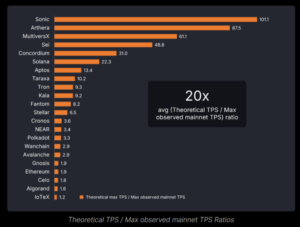Last updated:
 Why Trust Cryptonews
Why Trust Cryptonews

The crypto industry has been shaken by the controversy surrounding the LIBRA token, with KIP Protocol issuing an official statement denying involvement in the project’s launch.
KIP clarified that it neither initiated nor directed any activities related to the LIBRA token and was merely invited to assist in managing a separate financing initiative for Argentinian SMEs.
KIP Protocol Claims No Involvement In Token Launch
According to the KIP Protocol, Mauricio Novelli only invited the company on February 13, 2025, to assist with a future financing initiative for Argentinian SMEs unrelated to the token’s launch.
KIP emphasized that it neither created nor approved the Project Viva La Libertad website nor owned the domain.
Furthermore, Hayden Davis and Kelsier Ventures entirely managed the launch without KIP’s prior knowledge, and the company did not promote the token sale.
It was only posted on social media after the launch, relying on President Javier Milei’s then-public endorsement.
KIP further clarified that it did not profit from the launch and does not hold tokens or funds linked to Libra, Davis, or Kelsier.
The company also stated that it has no prior or ongoing relationship with President Milei, aside from a single meeting at Tech Forum Argentina in October 2024, during which neither Libra nor Project Viva La Libertad was discussed.
The Rise And Fall Of LIBRA
The LIBRA token was launched on February 15, 2025, with a significant endorsement from Argentine President Javier Milei, who shared a link to the project’s contract on X.
This immediately led to a surge in the token’s price, which jumped from $0.34 to $0.75 within hours. However, when Milei later deleted his post, the token’s value plummeted, leading to widespread speculation about a possible scam.
Investigations into the LIBRA project revealed several red flags. Notably, the official website for LIBRA was created just an hour before the token’s launch, despite its domain being registered a year earlier.
Adding to the controversy, LIBRA co-founder Hayden Davis admitted in a YouTube interview that he and his team had manipulated the token’s launch by “sniping our own coin.”
This statement only intensified scrutiny and fueled allegations of insider trading.
Further analysis showed that a single wallet had purchased LIBRA for approximately $1 million and later sold its holdings for $7 million, tipping at market manipulation and unfair advantages for insiders.
The Role of Meteora and Regulatory Fallout
The LIBRA token’s trading activity was overwhelmingly concentrated on Meteora, a decentralized exchange built on Solana.
Approximately 72.5% of LIBRA’s total trading volume, amounting to $116.5 million, occurred on this platform. This raised suspicions about whether Meteora played a role in facilitating the alleged scam.
Meteora’s co-founder, Ben Chow, attempted to distance the exchange from the controversy, asserting that it is a “permissionless platform” and was not involved in the LIBRA token launch.
Following many discoveries, Ben Chow resigned from his position at Meteora, though his colleagues continued to defend his character, stating there was no evidence of financial misconduct.
On-chain analysis from Nansen revealed that over 86% of Libra (LIBRA) meme coin investors suffered major losses, amounting to $251 million in realized losses.
Notably, Binance founder Changpeng ‘CZ’ Zhao donated 150 BNB (about $98,500) to victims of the recent Libra scam after a college student, EnHeng, started a fundraiser for affected individuals, particularly students.
However, after publicly sharing his donation address, CZ unexpectedly received more than his original contribution as others joined the effort, pushing the balance to 620 BNB.
CZ pledged to donate all received funds, likely directing them toward victims of TST or Broccoli-related losses, though he has yet to finalize the exact cause.
Looking forward, the unfolding scandal has damaged investor confidence and implicated several key players, including Argentine President Javier Milei, who is still battling the legal implications of it.
If all can be cleared up and the involved participants face the consequences of their actions, it might reignite optimism lost in meme coins.
















